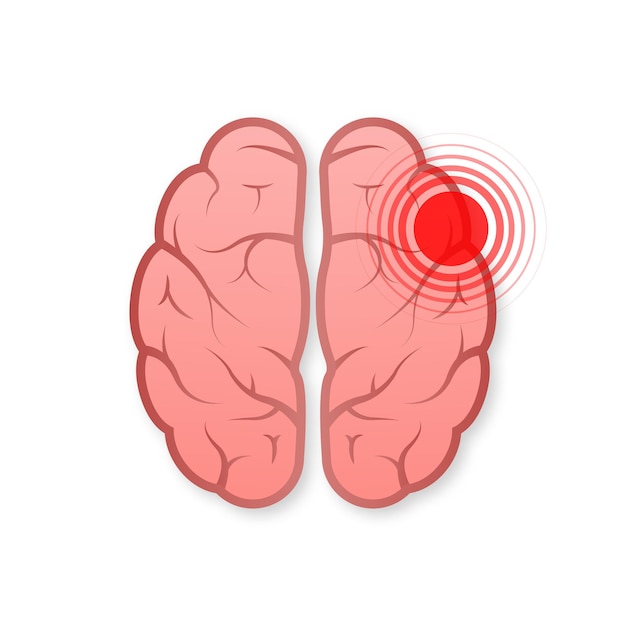
What Is a Migraine?
Migraines are described as pulsing, pounding, or throbbing pain, usually affecting one area of the head. This pain often comes with sensitivity to light and sometimes nausea or vomiting. Simply put, migraines hurt.
A quarter of those who suffer from migraines also experience “aura”—sensory disturbances that occur before a migraine hits. Common auras include spots, flashing lights, zigzags, or blind spots. Some people may also experience tingling or numbness on one side of the body or face, or have speech issues, such as slurred speech or difficulty finding the right words.
Common Migraine Symptoms
Symptoms of migraines can include:
– Pulsing, pounding, or throbbing pain
– Pain on one side of the head
– Nausea or vomiting
– Sensitivity to light or noise
– Aura, which can involve visual, verbal, or motor disturbances
17 Home Remedies for Migraines
While many turn to over-the-counter drugs like ibuprofen or prescription medications, home remedies can be an effective first line of defense against migraines. Here are some natural remedies that can help ease migraine pain.
Ice Pack
Applying ice or a cold washcloth to your neck or head during a migraine can help reduce pain by cooling the blood flowing through the carotid arteries, thus calming inflammation. A 2013 study showed that using a frozen neck wrap at the onset of a migraine significantly reduced pain.
Darkness
Most migraine sufferers are sensitive to light, a condition known as photophobia. Bright light can worsen the headache, so resting in a cool, darkened room can help alleviate the pain.
Caffeine
Caffeine can both trigger and relieve migraines, depending on the individual. A small amount of caffeine can provide pain relief, which is why it’s included in some over-the-counter migraine medications.
Exercise
Exercise can help prevent migraines and reduce stress, a common migraine trigger. Aim to work out three days a week for at least 30 minutes to lessen the frequency and severity of migraine headaches.
Feverfew
Feverfew is an herb that research has shown to be effective against migraines. Studies indicate that migraine patients who use feverfew experience fewer headaches compared to those taking a placebo.
Vitamin B-2
Vitamin B-2 (riboflavin) is often used for migraines. Studies have shown that it can reduce the frequency of migraines.
Yoga
Yoga is particularly beneficial for migraine pain. A 2007 study found that migraine patients who practiced yoga had significant reductions in headache intensity, frequency, and symptoms of anxiety and depression, along with decreased use of migraine medication.
Magnesium
Magnesium has a long history of easing migraine pain. A large study found that patients taking 600 milligrams of magnesium per day experienced a 41 percent reduction in the frequency of migraines compared to 15 percent in those taking a placebo.
Peppermint Tea
Peppermint tea, a centuries-old remedy for nausea, can also relieve migraine pain. You can make it by adding crushed dried peppermint leaves to hot water or by purchasing it pre-made from the store.
Ginger Tea
Ginger tea is another option when you feel migraine pain. Research shows that ginger powder can relieve migraine pain as effectively as common migraine medications known as “triptans.”
Willow Bark
Willow bark has been used for centuries to treat various types of pain, including headaches. It contains salicin, similar to the salicylic acid in aspirin. You can take it as a supplement or find it in herbal teas.
Acupuncture
A review of studies found that completing at least eight weeks of acupuncture treatments can be as effective as medication in reducing the number of migraines by 50 percent. Acupuncture was also found to be more effective than “sham” treatments.
Butterbur
The herb butterbur has been shown to help prevent migraines without significant side effects. One study found that butterbur extract reduced both the number and the duration of migraines, with 75 percent of participants reporting improvement.
Essential Oils
Several essential oils can counter migraine pain. Applying peppermint oil to the forehead and temples has been found to be significantly more effective than a placebo. Inhaling lavender oil can reduce migraine pain in less than 15 minutes, and chamomile oil, whether inhaled or added to a warm bath, can ease anxiety and sleeplessness related to migraines.
Cayenne Pepper
Migraines may respond to capsaicin, the active ingredient in cayenne pepper. Using a capsaicin nasal spray or applying a small amount of capsaicin gel or cream inside each nostril can provide relief, although it may cause a burning sensation, runny nose, and sneezing for a few minutes.
Apple Cider Vinegar
Known for aiding weight loss, apple cider vinegar may also reduce migraine pain. You can apply it as a cool compress to your forehead or drink it by adding a couple of tablespoons to eight ounces of distilled water.
Massage
Massage therapy can help alleviate migraine pain. A 2006 study found that patients who received massages for five weeks had fewer migraines and better sleep quality compared to those who did not receive massages.
What Causes Migraines?
Migraines can be triggered by various factors, including:
– Loud noises
– Strong smells
– Bright lights
– Irregular sleep patterns
– Caffeine
– Weather changes
– Stress
– Fatigue
– Medications
– Hormonal changes in women
– Certain foods
The National Institutes of Health also suggest that there may be a genetic predisposition for migraines.
Foods That Trigger Migraines
Different foods can trigger migraines in different people. To identify your food triggers, keep a diary of your diet and note when you experience migraines. Common migraine-triggering foods include:
– Ripened cheese (cheddar, Emmentaler, Stilton, Brie, Camembert)
– Pickled or dried herring
– Chocolate
– Fermented, pickled, or marinated foods
– Sour cream
– Nuts
– Peanut butter
– Sourdough bread
– Broad beans, lima beans, fava beans, and snow peas
– Foods containing monosodium glutamate (MSG)
– Figs, raisins, papayas, avocados, and red plums
– Citrus fruit
– Bananas
– Pizza
– Processed meats (sausage, bologna, pepperoni, salami, summer sausage, hot dogs)
– Chicken liver and paté
– Alcoholic beverages
How Long Can Migraines Last?
The duration of a migraine varies from person to person. Generally, untreated migraines can last between four hours and three days. If your migraines last longer or you can’t find relief, consult your doctor or healthcare provider.
Points to Remember
Migraines are intense, painful headaches that significantly impact your quality of life. Fortunately, there are many natural remedies to help alleviate and prevent migraines. These include supplements and herbs like magnesium and feverfew, yoga, essential oils such as lavender and peppermint, acupuncture, massage, and teas like peppermint and ginger. By incorporating these methods, you can reduce the intensity and frequency of migraines and their symptoms.



